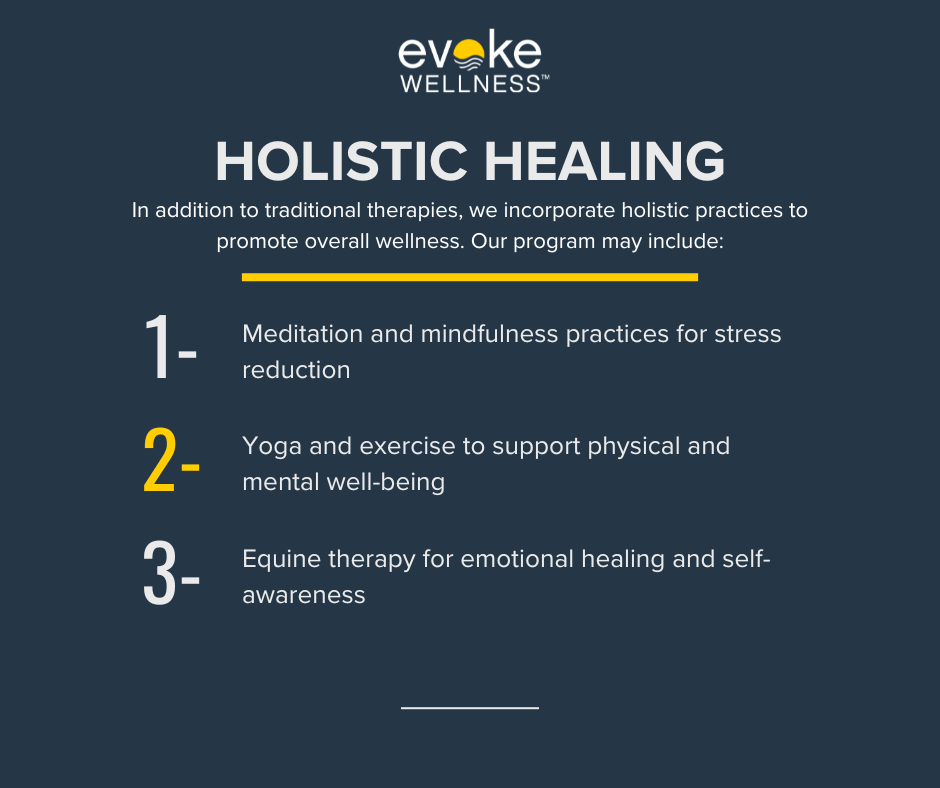Methamphetamine addiction is a devastating epidemic affecting millions of Americans. As a highly addictive stimulant, meth ravages both the body and mind, leaving a trail of destruction in its wake. Recent studies show that meth use has surged during the COVID-19 pandemic, with overdose deaths increasing by 35% in 2020. If you or a loved one is struggling with meth addiction, it’s crucial to understand the severe health, legal, and social ramifications of continued use. This article will examine the far-reaching consequences of meth addiction and explore treatment options to break free from its grip and reclaim your life.
If you or a loved one is struggling, help is available today. Call (833) 969-3318 to speak with our compassionate team, or reach out online and schedule an appointment to begin a healing journey.
The Rise of Meth Use in the United States
Methamphetamine, a powerfully addictive stimulant, has seen an alarming resurgence across America in recent years. Meth use skyrocketed by nearly 70% between 2015 and 2019, according to the Centers for Disease Control and Prevention.
An Evolving Threat
While meth has plagued communities for decades, the current crisis is fueled by cheaper, purer forms trafficked from Mexico. This influx, combined with the drug’s ability to hook users with an intense rush, has enabled meth’s virulent spread.
Regional Hotspots
Certain regions have been hit especially hard. The CDC reports treatment admissions for meth addiction jumped 141% in the Southwest from 2008-2019. In the West, meth now accounts for nearly 40% of all addiction cases.
Shattered Lives
Meth’s path of destruction touches all demographics – tearing apart families, fueling crime, and overwhelming social services. Its effects are both physically and psychologically devastating, often leading to job loss, health crises, and economic ruin for users.
While progress has been made, the data underscores an urgent need for expanded addiction treatment, prevention efforts, and strategies to stem this pernicious epidemic.
What Is Meth?
Methamphetamine, colloquially known as meth or crystal meth, is a potent and highly addictive synthetic stimulant. This illegal drug affects the central nervous system, triggering an intense rush of euphoria by flooding the brain with dopamine – a key neurotransmitter involved in pleasure and reward.
Meth’s Devastating Effects
While the initial high is powerfully euphoric, the consequences of meth abuse are dire. Long-term meth use can lead to numerous mental and physical health issues, including paranoia, hallucinations, memory loss, dental problems (“meth mouth”), drastic weight loss, and cardiovascular damage. Meth is neurotoxic, meaning it can cause permanent brain changes.
Withdrawal & Recovery Challenges
Quitting meth after prolonged use leads to difficult withdrawal symptoms like depression, anxiety, intense cravings, psychosis, and cognitive impairment. It may take years of abstinence for the brain to recover from the damaging effects of meth addiction. Comprehensive meth rehab programs are crucial for overcoming this powerful addiction.
Short-term Effects of Meth Use
Physical Toll
Meth is a potent central nervous system stimulant that delivers an intense rush of euphoria. However, the physical effects of using meth can be devastating, even in the short-term. Severe tooth decay and gum disease (known as “meth mouth”), drastic weight loss, skin lesions and malnutrition are all common side effects. Meth addicts also face risks like increased heart rate, blood pressure spikes and dangerously high body temperatures that can trigger strokes or heart attacks.
Psychological Impact
Meth use can wreak havoc on your mental state as well. Paranoia, hallucinations, violent behavior and severe mood swings are par for the course with this insidious drug. Over time, meth damages the brain itself, shrinking critical regions and eroding your ability to experience pleasure from normal activities.
Risky Behaviors
As meth distorts your perceptions and decision-making, it often leads users down an extremely dangerous path. Many meth addicts engage in risky sexual behaviors like unprotected intercourse, dramatically raising their risk of contracting HIV or hepatitis C. Sharing contaminated needles to inject meth also spreads these and other infectious diseases.
Long-term Health Risks of Meth Use
Methamphetamine, or meth, is an extremely addictive stimulant that wreaks havoc on the mind and body with prolonged abuse. The initial euphoria from meth use quickly gives way to devastating long-term effects.
1. Brain Damage
Long-term meth abuse can cause significant brain damage, altering its structure and impairing cognitive abilities. Users may experience memory loss, impaired decision-making, and emotional dysregulation. In severe cases, psychosis and schizophrenia-like symptoms can develop.
2. Physical Deterioration
Chronic meth use ravages the body, leading to extreme weight loss, severe dental problems (“meth mouth”), and skin lesions from obsessive picking. It also increases the risk of heart disease, lung damage, kidney failure, and infectious diseases like HIV/AIDS from risky behaviors.
3. Mental Health Struggles
Meth addiction often co-occurs with mental health disorders like depression, anxiety, and bipolar disorder. According to Evoke at Coconut Creek, a comprehensive “dual diagnosis” approach is crucial, combining therapies and medications to treat both substance abuse and psychological issues simultaneously.
4. Severe Withdrawal
Quitting meth after prolonged use is immensely difficult due to intense withdrawal symptoms like depression, anxiety, psychosis, and cognitive impairment that can persist for years, even with abstinence. Relapse rates are high without professional treatment.
The potential consequences of long-term meth addiction are severe and life-altering. Seeking comprehensive addiction treatment at a qualified rehab facility is crucial for overcoming meth’s devastating grip and regaining control over one’s mental and physical well-being.
Is Meth Addictive?
Methamphetamine, or meth, is an extremely addictive stimulant drug that can have severe and damaging effects on the brain and body. According to the National Institute on Drug Abuse, meth use causes a powerful release of dopamine, the “feel-good” neurotransmitter, leading to an intense euphoric high.
Addiction and Brain Changes
However, with continued use, the brain becomes dependent on meth to function normally, resulting in addiction. Meth addiction can have serious health consequences, including heart problems, psychosis, dental issues, and an increased risk of contracting infectious diseases like HIV and hepatitis C.
Behavioral and Social Impacts
Beyond physical effects, meth use can lead to legal issues, financial problems, and strained relationships due to the compulsive drug-seeking behavior associated with addiction. Overcoming meth addiction requires comprehensive treatment, including detoxification, behavioral therapies, and long-term support to address the underlying causes and develop healthy coping mechanisms.
Meth Addiction Treatment Program
At Evoke Wellness, our comprehensive Meth Rehab Program combines evidence-based therapies with a holistic approach to help you overcome meth addiction. We understand the complexities of this powerful stimulant and its devastating effects on physical and mental health.
Personalized Care
Our program begins with a thorough assessment to understand your unique needs and develop a personalized treatment plan. Our experienced team will guide you through:
- Cognitive-behavioral therapy (CBT) to identify and change harmful thought patterns
- Dialectical behavior therapy (DBT) to develop coping strategies and emotion regulation skills
- Medication-assisted treatment to manage withdrawal symptoms and cravings
Continuum of Care
Recovery from meth addiction is an ongoing journey. Our program offers a continuum of care to support you every step of the way:
- Family therapy to rebuild trust and strengthen relationships
- Aftercare planning and alumni support for long-term sobriety
- Trauma therapy to address underlying issues and past traumas
At Evoke Wellness, we understand the challenges of meth addiction recovery. Our compassionate team is dedicated to guiding you toward a life of lasting freedom from addiction.
Addiction Treatment
1. Comprehensive Programs
Evoke Wellness at Coconut Creek offers a comprehensive suite of addiction treatment programs tailored to individual needs. From residential inpatient care to intensive outpatient services, evidence-based therapies like cognitive-behavioral therapy (CBT) and dialectical behavior therapy (DBT) are integral components of the treatment approach.
2. Dual Diagnosis Support
For those struggling with co-occurring mental health disorders alongside substance abuse, Evoke provides specialized dual diagnosis treatment. This integrated approach addresses underlying conditions like depression, anxiety, PTSD, and trauma simultaneously, improving long-term recovery outcomes.
3. Holistic Healing
In addition to traditional therapies, Evoke incorporates holistic healing practices such as meditation, equine therapy, and experiential activities. This multifaceted approach nurtures the mind, body, and spirit, empowering individuals to develop essential life skills and coping mechanisms.
4. Continuum of Care
Evoke’s continuum of care model ensures a seamless transition through various levels of support as individuals progress in their recovery journey. From intensive residential treatment to aftercare and alumni programs, this comprehensive approach maximizes the chances of achieving lasting sobriety.
5. Family Involvement
Recognizing the profound impact of addiction on loved ones, Evoke’s family program actively involves family members in the healing process. Through counseling and education, families develop a deeper understanding of addiction, learn healthy communication strategies, and rebuild stronger, more supportive relationships.
Am I at Risk for Addiction?
Genetic & Environmental Factors
Addiction risk involves a complex interplay of genetic and environmental influences. Some individuals may have a higher biological predisposition due to variations in brain chemistry and function. However, environmental factors like trauma, stress, and social circumstances also play a crucial role.
Signs of Addictive Behaviors
Compulsive behaviors, an inability to control use despite negative consequences, and developing tolerance or withdrawal symptoms can indicate addiction risk. Relapse prevention therapy helps identify and manage these warning signs.
Substance-Specific Risks
Certain substances like methamphetamine are highly addictive due to their potent effects on the brain’s reward pathways. Ecstasy rehab programs address the unique challenges of recovering from club drugs. Being aware of a substance’s addictive potential is crucial.
Getting Support
If you’re concerned about addiction risk, take our quiz. Comprehensive addiction treatment programs offer evidence-based therapies, such as cognitive-behavioral therapy for compulsive behaviors, to help prevent or overcome substance use disorders. Early intervention can make a significant difference.
Meth Addiction FAQs
Am I at Risk of Addiction?
- Meth addiction doesn’t discriminate – anyone can fall victim, regardless of age, background or socioeconomic status. However, certain factors increase vulnerability, including genetic predisposition, mental health issues, and early exposure to drugs or trauma.
- If you’re struggling with intense cravings, loss of control over use, or continuing despite negative consequences, professional help is crucial.
Signs of Meth Addiction
- Physical signs like extreme weight loss, rotting teeth, and skin sores/burns are common with chronic meth use. Psychological symptoms like paranoia, hallucinations, and violent mood swings also occur.
- Drastic changes in behavior – lying, stealing, job loss – indicate an addiction has taken hold. If you or a loved one exhibits these signs, it’s time to seek treatment.
Treatment Options
- Inpatient or outpatient rehab that utilizes behavioral therapies, counseling, and peer support groups offers the best chance at overcoming addiction. Medications may help manage cravings or co-occurring mental health issues.
- Choosing a reputable, accredited facility with experience treating stimulant addictions is key to lasting recovery.
Conclusion
In conclusion, the consequences of meth addiction are severe and far-reaching. From devastating physical and mental health effects to strained relationships and legal troubles, meth use exacts a heavy toll. However, recovery is possible with proper treatment and support. If you or a loved one is struggling with meth addiction, don’t wait to seek help. Professional treatment programs can provide the tools and resources needed to overcome addiction and rebuild your life. Remember, addiction doesn’t discriminate – anyone can be at risk. By educating yourself on the dangers of meth and taking proactive steps to address substance use issues, you can protect your health and future. There is hope, and a healthier, meth-free life is within reach.
Begin Your Journey With Evoke Wellness at Coconut Creek
Evoke Wellness at Coconut Creek is a full-service addiction treatment facility serving Florida residents. We base each of our programs on the individual’s severity of symptoms and use a combination of evidence-based therapies and holistic approaches to address the needs and recovery goals of the patient.
If you or a loved one is struggling, help is available today. Call (833) 969-3318 to speak with our compassionate team, or reach out online and schedule an appointment to begin a healing journey.



